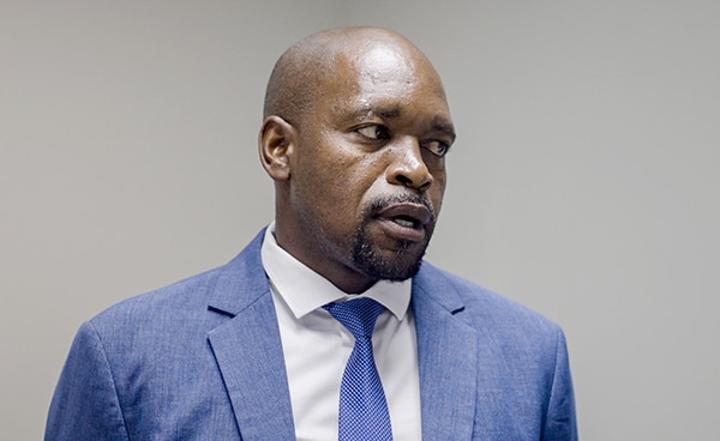Africa-Press – Lesotho. Lesotho’s main referral healthcare facility, the Queen ’Mamohato Memorial Hospital (QMMH), is in dire financial straits threatening its eight-year existence.
Public Eye
can report some of the service providers for the country’s premier hospital who have not been paid for services offered fear they could be left in the lurch if the hospital eventually goes out of business.
“We write with reference to substantial amounts due to Netcare Hospitals Lesotho (NHL), some dating back to start of the project in 2011.
Amounts due for the 2019 calendar year to date currently exceeds M73 million confirming the materiality of the matter,” said Netcare General Manager Finance Chris Smith in a letter to the hospital’s board of directors.
“Furthermore, we have been informed that Tšepong is experiencing unprecedented cash flow strain which is impacting its going concern status and ability to trade as such,” added Smith in a letter dated June 13, a copy of which Public Eye has seen.
QMMH, the modern 425-bed hospital, is the first of its kind in any low-income country in the world – built, financed and run entirely as a Public-Private Partnership (PPP).
It is run by Tšepong Pty Ltd – a consortium of five companies, namely Netcare Hospital Group and Afri’nnai of South Africa, as well as Excel Health, Women Investment and D10 Investments from Lesotho – under an 18-year contract at the end of which the hospital passes into full government ownership.
The PPP contract was signed in 2008 while the hospital opened its doors in October 2011 to replace the ageing Queen Elizabeth II Hospital, and to upgrade the network of urban filter clinics.
Netcare Hospital Group is the main shareholder of QMMH, popularly known as Tšepong. Based in Sandton, South Africa, Netcare operates the largest private hospital, primary healthcare, emergency medical services and renal care networks in South Africa.
Public Eye
has seen a copy of Tšepong’s Non-Statutory Financial Statement for the year ended September 30, 2018. According to these financial statements, Tšepong recorded a net profit after tax of M33 144 550, a 47.87 decline from 2017’s net profit of M63 579 450 after tax.
However, in their report attached to the statements, Tšepong directors said they believed that the company had adequate financial resources to continue operating for the foreseeable future. Accordingly, they said, the non-statutory financial statements were prepared on a going concern basis.
“The directors have satisfied themselves that the company is in sound financial position and that it has access to sufficient borrowing facilities to meet its foreseeable cash requirements,” the directors said in their report.
They said they were not aware of any new material changes that may adversely impact the company. “The directors are also not aware of any material non-compliance with statutory or regulatory requirements or of any pending changes to legislation which may affect the company,” they said. No dividends were declared for both 2017 and 2018.
Public Eye
has also seen a copy of a document titled QMMH 2018 Management Report and Post Balance Sheet Events which revealed that a number of post-balance sheet (30 September 2018) events occurred, which in aggregate, could impact Tšepong’s going concern status.
Submitted to Tšepong’s auditors Sheeran and Associates on May 6, the report revealed that government had not been paying the compulsory monthly unitary fee punctually which resulted in an extended cash flow cycle after the 2018 financial year end.
In the absence of available bridging finance facilities, Tšepong had been unable to settle its scheduled instalments on December 31, 2018, and March 31, 2019.
“The December instalment has subsequently been settled but as at May 6, 2019, the March 2019 instalment remained in arrears.
Sub-contractors also experience delays in having invoices settled within the agreed settlement periods due to Tšepong’s lack of cash flow resources,” read the report.
It was written by Smith – Netcare General Manager Finance – “for Tšepong (Pty) Ltd pursuant to management agreed”. When contacted on Wednesday, Tšepong’s director Professor Lehlohonolo Mosotho said: “I am aware of the said documents.
But I do not have any further comments on the issues. ” In his management report, Smith indicated that the delays by government in settling its debts not only triggered additional default interest payments but also posed a continuity risk to operations.
“The negative cash flow position of Tšepong has been exacerbated by the ongoing delay by government to settle the 2017 extra services invoice and extra services default interest which are undisputed,” Smith said.
He indicated that Tšepong approached government on numerous occasions to confirm its commitment to settle the amounts. Request for Comment sent to Finance Minister Dr Moeketsi Majoro.
Smith said on March 27 this year, Tšepong’s board was requested to approve a mandate, as part of a three-prong approach to enable QMMH management to sue the government.
“The Tsepong board failed to provide management with the required mandate to protect its interests which now materially impacts the recoverability of the 2017 extra services and default interest payable on the delayed 2016 extra services payment,” he said.
Government pays Tšepong M540 million as an annual unitary payment as part of the contract. The unitary fee under the original tender catered for 16,000 inpatient admissions and 278,000 outpatient visits per year.
For the same fee, Tšepong committed to treat 20,000 inpatients and 310 000 outpatients per year. Any patients serviced in excess of these numbers leads to higher payments.
These numbers have been exceeded each year since the PPP became operational, according to the World Bank, with more than 27,000 inpatients and nearly 350,000 outpatients treated in 2015 alone.
The charges for excess patients reportedly now make up 19 percent of Tšepong’s fees charged. In March last year, Deputy Prime Minister Monyane Moleleki said government owed Tšepong M400 million for excess patients.
In the report to the auditors, Smith said during the first half of 2018, Tšepong experienced significant cash flow strain due to non-payment by government.
He said the major shareholder Netcare supported and sustained the project by funding Tšepong’s obligations when it had no alternative cash resources. “This was on the back of reassurances provided by the government’s legal team that government payment was to be released shortly.
“The Tšepong shareholders subsequently expressed concern about Netcare’s financial assistance through the residing mediator at the board meeting held on March 8, 2019, essentially requesting that Netcare should refrain from providing cash flow support to Tšepong,” he said.
He indicated that Tšepong’s ability to remain a going concern was therefore solely dependent upon government’s timeous settlement of its obligations. Last week, Minister of Health Nkaku Kabi told journalists that the contract was skewed in favour of Tšepong, adding it was sucking government coffers dry.
He said the contract “is ridiculous” and should have never seen the light of the day. Kabi said government could deviating from paying Tšepong the M540 million even if the flow of patients to the hospital was curtailed by the network of referral hospitals established in Leribe and Mafeteng.
“While the stress of having to send patients for treatment to foreign countries is finally coming to an end, another issue is that the budget is going to have to be increased. India’s doctors demand to be paid M40 million a year and M60 million for South Africa doctors.
“I thought if this is the case Tšepong will only be given M100 million or M200 million but the signed agreement says it should be given M540 million and I honestly still find that agreement too weird for me to understand even today,” he continued.
Kabi said they had appealed to the World Bank to intervene in the Tšepong issue: “The contract is currently being reviewed and there seems to be light at the end of the tunnel.
We tried reviewing it on our own but realised we might end up taking each other to court and then as a result our mission would fail. By the look of things everything might go well, the contract might be renegotiated so it can be redrafted.
He said the bad blood between government and Tšepong worsened after some referrals to Tšepong from clinics and hospitals in some districts that were never supposed to be taken to Tšepong were admitted.
Kabi said his ministry had bought medical equipment for its hospitals and clinics in a bid to reduce cases to Tšepong. He alleged that Tšepong negatively interprets issues to the public to sully government’s image. According to Kabi, government had resorted to importing specialists because Tšepong had failed to fulfil this part of its contract.
For More News And Analysis About Lesotho Follow Africa-Press






